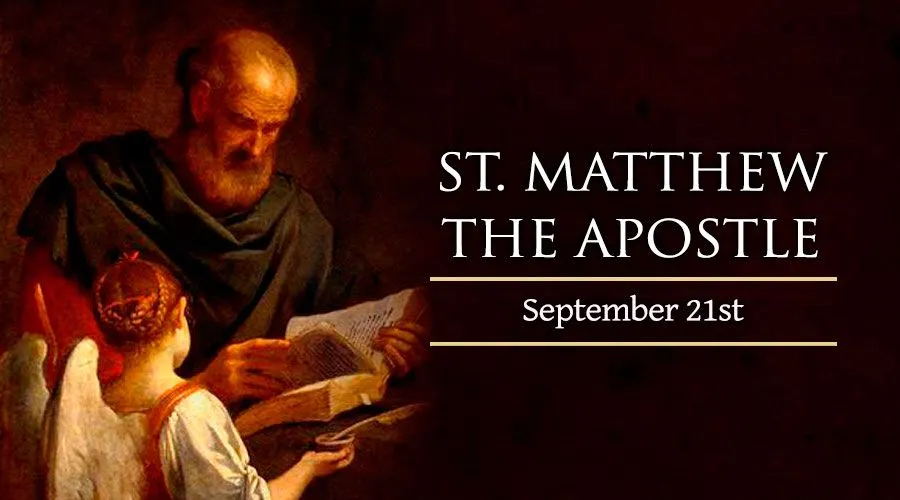Sub-Saharan Africa, 21 September, 2025 / 11:15 am (ACI Africa).
Saint Matthew, the first-century tax collector turned apostle who chronicled the life and ministry of Christ in his Gospel, is celebrated by the Church today, September 21. Although relatively little is known about the life of St. Matthew, the account he wrote of Christ's ministry – traditionally considered to be the first of the four Gospels - is of inestimable value to the Church, particularly in its verification of Jesus as the Messiah.
Eastern Catholics and the Orthodox churches celebrate St. Matthew on November 16, along with St. Fulvianus, a prince who is recorded in some traditions as converting from paganism after Matthew's martyrdom.
The Gospel accounts of Mark and Luke, like Matthew's own, describe the encounter between Jesus and Matthew under the surprising circumstances of Matthew's tax-collecting duties. Jewish publicans, who collected taxes on behalf of the Roman rulers of first-century Judea, were objects of scorn and even hatred among their own communities, since they worked on behalf of the occupying power and often earned their living by collecting more than the state's due.
Jesus most likely first encountered Matthew near the house of Peter, in Capernaum near the Sea of Galilee. The meeting of the two was dramatic, as Matthew's third-person account in his Gospel captured: “As Jesus passed on,” the ninth chapter recounts, “he saw a man named Matthew sitting at the customs post. He said to him, 'Follow me'. And he got up and followed him.”
Matthew's calling into Jesus' inner circle was a dramatic gesture of the Messiah's universal message and mission, causing some religious authorities of the Jewish community to wonder: “Why does your teacher eat with tax collectors and sinners?” Jesus' significant response indicated a central purpose of his ministry: “I did not come to call the righteous but sinners."






